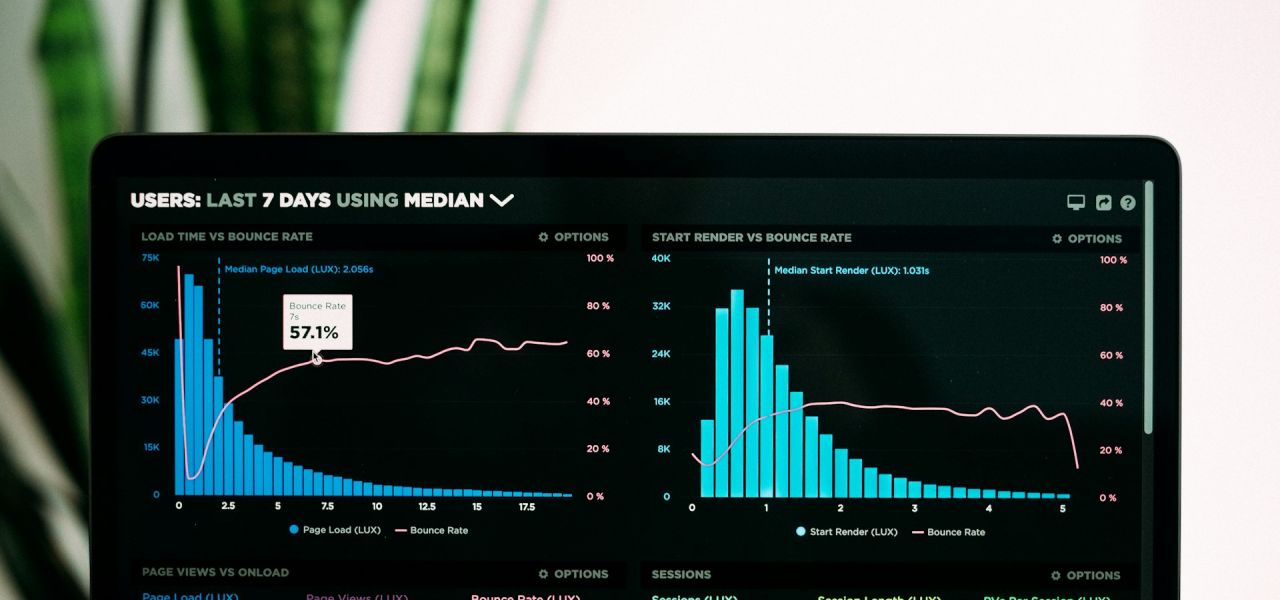Not Just Buzzwords — Keywords Are Your Digital Welcome Sign
Let’s be real — “keyword research” sounds like something you’d rather leave to the laptop goblins in dark rooms filled with graphs and green Matrix code. But if you’re a local business trying to get found online, keywords are the digital equivalent of putting your name on the door, your best offers in the window, and a sandwich board on the sidewalk.
And when they’re chosen right? They’ll guide your next customer straight to you — whether they’re googling “best pizza in New Haven” or “electrician near me.”
In this guide, we’re breaking down:
- Why keywords matter (even for brick-and-mortar businesses)
- What makes a good local keyword (hint: it’s more than just “plumber + city”)
- How to actually find them (without going down an SEO rabbit hole)
- Where to put them on your site so Google notices
Whether you’re a café owner, a home service pro, or running a niche shop with big dreams, this one’s for you.
Why Keywords Matter for Local SEO

Imagine you open a beautiful new bakery downtown. The pastries are perfect, your sourdough is the stuff of legend, and you even splurged on one of those chalkboard signs with a quirky quote out front.
Now imagine… there’s no sign on the building. No name. No indication of what you do.
People walk by, they sniff the air, maybe peek inside — but most of them keep walking. Why? Because they didn’t know what they were looking at.
That’s what having a website without the right keywords is like.
Keywords Are How People Find You
When someone types “best bakery in Hartford” or “gluten-free cupcakes near me,” Google doesn’t magically know which website to show. It scans pages looking for clues — aka keywords — that match what the user is searching for.
If your website clearly says things like “custom cakes in Hartford” or “local bakery with gluten-free options,” Google’s like, “Ah! This is exactly what they want.” Boom — you show up.
Local SEO Keywords Make a Huge Difference
Let’s say you’re a accountant. “Accountant” is a broad keyword. You’re competing with every accountant from New York to New Zealand.
But “accountant in Bristol” or “small business accountant Bristol, CT”? Now you’re talking. Those are local SEO keywords, and they:
- Cut out the noise
- Connect you with people actually looking in your area
- Are easier to rank for than super generic terms
Even better? They bring in traffic from people with purchase intent — the ones who are actively looking for what you offer.
So no, it’s not just about “getting traffic.” It’s about getting the right people to your site. And that starts with the words you use.
What Makes a Good Local SEO Keyword?

Alright, so we agree that keywords are important. But not all keywords are created equal — especially when you’re a local business trying to stand out in your city (and not fight the entire internet).
So how do you know which ones are worth chasing?
Let’s break it down like a perfect breakfast taco: local SEO keywords need a few solid ingredients to be effective.
1. Relevance
Your keywords should match exactly what you offer. If you’re a photographer, “wedding photographer” might be relevant — but “photo printing” or “camera repair” isn’t (unless you actually offer those too).
Start by asking: What would someone type into Google if they were looking for my exact service or product?
2. Location-Specific
Local SEO keywords should include where you do business. That could be your city, neighborhood, or service area.
Examples:
- “AC repair in Waterbury”
- “Family law attorney Middletown”
- “Pet grooming Farmington”
Bonus tip: Google also understands nearby cities and suburbs. So mixing in variations like “near me” or “CT” can help widen your net.
3. Search Volume (but Not Too Much)
You want local SEO keywords people actually search for — but not ones so competitive that you’re battling national brands or Wikipedia for page one.
Pro move: Go after long-tail keywords — 3-5 word phrases like “affordable wedding photographer West Hartford” or “emergency plumbing in Manchester.” These tend to have less competition and attract customers ready to buy.
4. Commercial Intent
Some keywords are just people browsing. Others are from people ready to act.
Look for search terms that show intent, like:
- “Best [service] in [city]”
- “[Service] near me”
- “Affordable [service]”
- “Top-rated [business type]”
These are the folks ready to pick up the phone, click your contact form, or walk through your door.
How to Find the Right Keywords for Your Business

Now that we know what makes a good local keyword, the next step is figuring out which ones you should be using. This part can feel a little overwhelming — but it doesn’t have to.
Let’s break it down into a simple, repeatable process. No spreadsheets required (unless you’re into that).
Step 1: Start With What You Know
Grab a notebook or open a doc and brainstorm:
- What services or products do you offer?
- What problems do you solve?
- What do your customers actually ask for?
If you’re a home remodeling contractor, that might look like:
“kitchen remodel, bathroom renovation, custom cabinets, home addition, New Britain”
Don’t worry about being perfect — just start writing what comes to mind. The goal is to build a core list of what you want to be found for.
Step 2: Add Local Flavors
Now add your city, neighborhood, or service area to those keywords.
Take your brainstormed list and turn:
“custom cabinets” → “custom cabinets in New Britain”
“kitchen remodel” → “kitchen remodeling company New Britain CT”
You can also add terms like:
- “near me”
- “in my area”
- “Hartford County” (if you’re covering multiple cities)
Step 3: Let Google Help You
Here’s where it gets fun — and a little sneaky.
Use Google’s Autocomplete:
Start typing a keyword into Google and see what suggestions pop up. These are real searches other people are doing.
Type in “web design West Hartford” and you might see:
- “web design West Hartford small business”
- “affordable web design West Hartford”
- “best website designer West Hartford CT”
Check the “People Also Ask” Box:
When you Google something, look at the “People Also Ask” box. These are gold mines for long-tail keyword ideas.
Example:
You search “SEO for local businesses” and see questions like “How do I find local SEO keywords?” or “Is SEO worth it for small businesses?” — guess what, those are great blog topics and keyword ideas.
Step 4: Spy on the Competition
Pick a few competitors who rank well in your area and take a peek at their site:
- What words are they using in titles, headers, and URLs?
- Are they using location-based terms?
- Do they have separate service pages for each offering?
You can also plug their site into a tool like Ubersuggest, Ahrefs, or SEMrush to see what keywords they rank for — and where the gaps are.
💡 Bonus Tip: Use Your Own Data
If you’ve had your website live for a bit, check your Google Search Console. It’ll show you real search terms people are using to find you — including ones you didn’t even realize you were ranking for.
This can lead to some surprising discoveries (and content ideas you hadn’t thought of).
Tools That Make Local SEO Keyword Research Way Easier

Okay, so maybe you don’t want to spend your Saturday night manually Googling “best plumber Newington” fifty different ways. Fair.
The good news? There are a bunch of tools out there that make local keyword research faster, easier, and way less confusing — even if you’ve never logged into a fancy SEO platform in your life.
Here are a few of the best (some free, some paid, all useful):
Google Keyword Planner
https://business.google.com/us/ad-tools/keyword-planner
Best for: Finding keyword ideas based on services
Why it’s great:
It’s free, and it comes straight from the source (Google). Pop in a service + your location (e.g., “roof repair New Britain”) and it’ll give you ideas, monthly search volumes, and competition estimates.
- Pro tip: Use it to find longer variations of your main keyword with less competition.
Google Trends
https://trends.google.com/trends
Best for: Understanding seasonal interest and regional popularity
Why it’s great:
It shows how interest in certain search terms changes over time — super helpful for seasonal businesses like landscapers, HVAC, or tax pros.
- Want to know if “furnace tune-up” or “heating repair” gets more traction in your area during November? This is the tool.
Ubersuggest (by Neil Patel)
https://neilpatel.com/ubersuggest
Best for: Beginner-friendly keyword and competitor research
Why it’s great:
It’s super visual and easy to use. Plug in a keyword or a competitor’s domain, and it’ll show you:
- Keyword difficulty
- Traffic estimates
- Keyword suggestions
- What competitors are ranking for
- Great if you want quick wins without diving deep into enterprise-level SEO tools.
AnswerThePublic
Best for: Finding question-based local SEO keywords
Why it’s great:
This tool scrapes Google’s autocomplete data and gives you a visual map of what people are asking. Perfect for blog ideas and capturing “how do I…” searches.
- Example: Search “local SEO” and it shows results like “how does local SEO work?” or “is local SEO worth it?” — great long-tail keywords that are easier to rank for.
Moz Local & BrightLocal
https://moz.com/products/local
Best for: Businesses with multiple locations or local SEO audits
Why they’re great:
These tools dig deeper into how well your business is showing up in local results — including Google Business Profile optimization, local citations, and NAP consistency.
- Not just keyword research — they give you a full view of how “visible” you really are in your area.
How to Use Keywords on Your Website Without Sounding Like a Robot

So you’ve got your keywords — the good ones. Local, relevant, and ready to go. Now what?
Here’s the thing: using local SEO keywords the right way is just as important as picking them. Do it wrong and you sound like you’re writing for robots. Do it right and you’ll boost your visibility and still sound like a human your customers actually want to work with.
Let’s walk through where and how to use your keywords so Google (and your visitors) love what they see.
Page Titles (aka the First Impression)
This is what shows up in Google search results — it’s the headline of your page in the eyes of search engines and users.
Do:
“Affordable Web Design Services in Fort Worth | Alliance Web Design”
Don’t:
“Home Page” 😬
Put your most important keyword near the front, and keep it clear.
Meta Descriptions
These don’t directly impact rankings, but they do influence clicks. Use them to reinforce your keyword and entice people to click.
Example:
“Need a custom website that actually gets results? We help Fort Worth businesses grow online with expert design and SEO.”
Headings (H1, H2s, etc.)
Use your main keyword in your H1 (main page title) and sprinkle related terms into your subheadings. This helps Google understand your content — and makes it easier for people to scan.
First 100 Words
Don’t bury the lede — use your main keyword early on in your content so it’s immediately clear what the page is about.
Example (for a local accountant):
“Looking for a trusted small business accountant in Arlington, TX? We help local entrepreneurs stay on top of their finances…”
Image Alt Text
Google can’t “see” images — it reads the alt text to understand what they are. Use descriptive keywords here that reflect the image and support your topic.
Example:
“Fort Worth bakery website homepage screenshot”
URLs That Don’t Suck
Keep URLs short, clean, and keyword-relevant.
Do:/web-design-new-britain
Don’t:/page-id-47389
Bonus: this also looks way better when you share links on social or in emails.
Keyword Stuffing: The SEO Sin That Won’t Die
Please don’t cram your keyword into every sentence like it’s 2009. Not only will Google raise an eyebrow, your visitors will bounce faster than a kangaroo on espresso.
Instead:
- Use synonyms and variations
- Write naturally
- Focus on solving the reader’s problem
Want a Full Local SEO Keyword + Content Checkup?
This is where our Website Audit comes in — it doesn’t just tell you if your keywords are there, but whether they’re working. We also look at layout, messaging, technical speed, and how your site performs across devices.
Because keyword strategy means nothing if your site loads like a sloth or scares visitors away with clutter.
Conclusion: Your Customers Are Searching — Are You Showing Up?
Choosing the right keywords for your local business website isn’t about stuffing random phrases into your homepage and hoping for the best. It’s about understanding how your customers think, how they search, and how to meet them where they are — literally, in your city.
It’s not rocket science. It’s just a bit of strategy, some common sense, and a willingness to dig in and speak your customers’ language.
Here’s a quick recap:
- Keywords are your digital storefront signs — they help the right people find you
- Great local keywords are relevant, location-specific, and show intent
- Use simple tools to discover what your audience is really searching for
- Apply those keywords smartly across your site — titles, text, images, and structure
- Don’t forget: keyword research is just one part of the bigger picture (which is why our Website Audit looks at the whole ecosystem, not just SEO)
So go forth and optimize — because when your keywords match your real-world value, you won’t just show up online. You’ll stand out.

